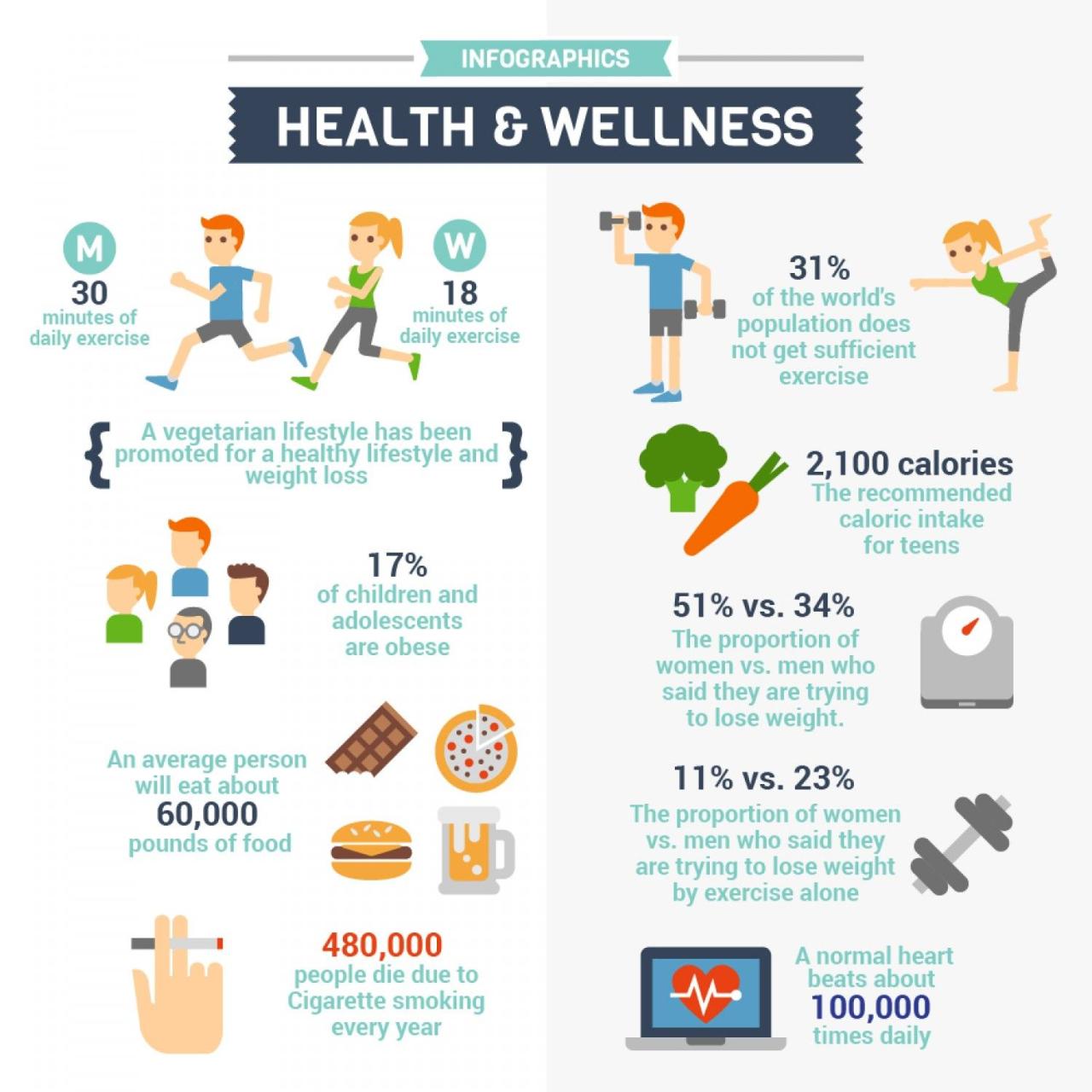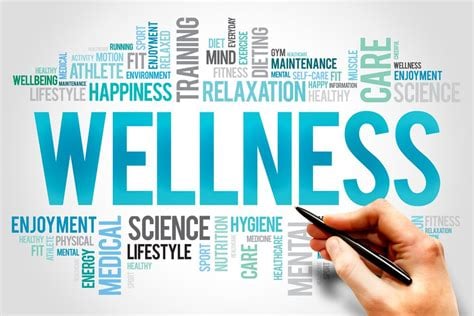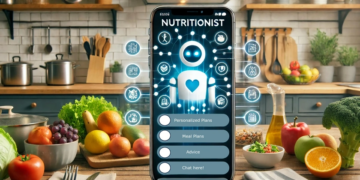Social media has revolutionized the way we interact, learn, and maintain our well-being. Over the past decade, digital platforms have not only redefined communication but have also significantly influenced how we approach health and wellness. This comprehensive article delves into the multifaceted relationship between social media and wellness, exploring both the positive and negative impacts, and offers actionable strategies for maintaining a balanced digital life.
In today’s interconnected world, social media is omnipresent. Platforms like Facebook, Instagram, Twitter, and TikTok have become integral to daily life, offering unprecedented opportunities for connection, information exchange, and support. As interest in health and wellness surges, these platforms are increasingly used as tools for inspiration, education, and community building. However, with this growing influence comes a need for critical examination. How does social media affect mental and physical health? What are the benefits and potential pitfalls of using these platforms as part of a wellness journey?
This article examines the influence of social media on wellness from various perspectives, offering insights into both its positive contributions and its challenges. In doing so, we aim to provide a balanced view that can help individuals harness the best of what social media offers while mitigating its adverse effects.
The Emergence of Social Media as a Wellness Tool
A New Era of Connection and Community
Social media has transformed the way we connect with others. Gone are the days when information and support were confined to local communities or in-person interactions. Today, anyone with an internet connection can access a global network of like-minded individuals dedicated to health, fitness, mental well-being, and lifestyle improvements. The digital age has given rise to online communities where people share success stories, exchange wellness tips, and offer mutual encouragement. These virtual support networks provide an invaluable resource for individuals seeking to overcome challenges or simply find motivation to pursue healthier lifestyles.
Access to Health Information and Resources
One of the most significant contributions of social media is the democratization of information. Wellness influencers, healthcare professionals, and enthusiasts regularly share content related to nutrition, exercise, mental health, and self-care. This content is often presented in engaging formats such as videos, infographics, and interactive posts. As a result, users have easy access to a wealth of knowledge that was previously available only through professional consultations or academic research.
However, the ease of access to health information also carries risks. The vast amount of data available online can sometimes lead to misinformation or oversimplified advice. It is essential for users to critically evaluate the sources and ensure that the information they follow is credible and evidence-based.
Wellness Influencers and the Digital Revolution
Wellness influencers have become prominent figures on social media, shaping trends and inspiring millions. They share personal journeys, expert tips, and transformational stories that resonate with a wide audience. These influencers often advocate for holistic approaches to health, emphasizing not only physical fitness but also mental and emotional balance.
The impact of these influencers is profound. They create a sense of community and belonging, empower individuals to make positive changes, and even influence consumer behavior by promoting health products and services. However, the influencer culture is not without controversy. Issues such as authenticity, commercialization, and the pressure to maintain an idealized image can lead to skepticism and potential negative effects on followers’ self-esteem.
Benefits of Social Media for Wellness
Social media offers numerous benefits when it comes to promoting wellness. While it can be a source of stress if used improperly, it also provides several avenues for enhancing one’s quality of life. Let’s explore some of the key benefits:
A. Emotional Support and Connection
Digital platforms enable users to connect with friends, family, and even strangers who share similar struggles or triumphs. This connectivity can provide essential emotional support, reducing feelings of isolation and loneliness. By participating in online communities or support groups, individuals can share experiences, ask for advice, and receive encouragement during challenging times.
B. Motivation and Inspiration
Social media is a powerful source of motivation. Success stories, before-and-after transformations, and daily wellness tips can inspire users to set personal goals and pursue healthier lifestyles. Regular exposure to motivational content can lead to increased physical activity, improved dietary habits, and a more proactive approach to mental health.
C. Access to Professional Advice and Expertise
Many healthcare professionals now use social media to share expert advice. Through webinars, live sessions, and Q&A forums, users can gain insights into health topics from qualified professionals. This direct access to expert opinions can help individuals make informed decisions about their well-being and better manage chronic conditions or mental health issues.
D. Community Building and Peer Support
The community aspect of social media is invaluable for those on a wellness journey. Online groups centered around fitness challenges, mental health support, or nutritional advice offer peer-to-peer interactions that can enhance accountability and provide practical tips. This sense of community often results in lasting friendships and ongoing support systems that extend well beyond digital interactions.
E. Educational Opportunities
Social media platforms serve as modern classrooms where users can learn about various aspects of wellness. Educational content, including articles, videos, and podcasts, is readily available and accessible to a global audience. This widespread availability of knowledge empowers users to take control of their health and make lifestyle choices that are informed by the latest research and trends.
Challenges and Negative Impacts
Despite its many benefits, social media also presents several challenges that can negatively impact wellness. It is important to recognize these potential pitfalls and understand how to address them effectively.
A. Comparison and Self-Esteem Issues
One of the most common downsides of social media is the tendency for users to compare themselves to others. Constant exposure to curated images and success stories can lead to feelings of inadequacy, low self-esteem, and even depression. This phenomenon, often referred to as “comparison culture,” is particularly prevalent among younger users who are still forming their self-identity.
B. Misinformation and Unverified Content
The abundance of health-related content on social media is a double-edged sword. While it offers valuable insights, it also opens the door to misinformation. Unverified advice, pseudoscience, and misleading health claims can spread rapidly, sometimes with dangerous consequences. It is crucial for users to verify the credibility of the sources they follow and seek professional guidance when needed.
C. Addiction and Excessive Screen Time
Another significant challenge is the potential for social media addiction. Spending excessive amounts of time on digital platforms can lead to negative physical and mental health outcomes, including sleep disturbances, anxiety, and reduced productivity. The addictive nature of social media is often fueled by features designed to keep users engaged, such as endless scrolling, notifications, and algorithm-driven content.
D. Privacy Concerns and Data Exploitation
As users share personal information and health-related details on social media, privacy becomes a major concern. Data breaches, unauthorized data sharing, and targeted advertising can compromise user privacy and create additional stress. Being aware of privacy settings and understanding the data policies of social media platforms is essential for protecting one’s personal information.
E. Impact on Physical Health
Extended periods of inactivity associated with excessive screen time can contribute to a sedentary lifestyle, which is linked to various health issues such as obesity, cardiovascular disease, and musculoskeletal problems. Moreover, the blue light emitted from screens can disrupt sleep patterns, further impacting overall health and wellness.
Strategies for Harnessing the Positive Aspects of Social Media
Given the complex influence of social media on wellness, it is vital to adopt strategies that maximize its benefits while minimizing the negative impacts. The following actionable steps can help individuals create a healthier relationship with digital platforms:
A. Practice Mindfulness and Digital Detox
Mindfulness involves being fully present in the moment and recognizing one’s feelings and thoughts without judgment. When applied to social media usage, mindfulness can help users identify when their engagement is becoming detrimental to their well-being. Regular digital detoxes—periods during which one refrains from using social media—can also restore balance and reduce stress. Consider the following approach:
A. Schedule regular breaks away from screens.
B. Engage in offline activities such as reading, exercise, or spending time in nature.
C. Use mindfulness techniques like deep breathing or meditation during stressful periods.
B. Curate Your Feed
The content you consume on social media significantly affects your mental state. By carefully curating your feed, you can ensure that you are exposed to positive, uplifting, and informative content. Here are some steps to consider:
A. Follow accounts that promote genuine wellness, education, and positivity.
B. Unfollow or mute accounts that trigger negative emotions or comparisons.
C. Diversify your sources to include reputable experts and professionals in the field of wellness.
C. Set Boundaries for Usage
Creating clear boundaries around social media usage can prevent it from taking over your life. Some practical tips include:
A. Allocate specific times during the day for checking social media.
B. Turn off non-essential notifications to reduce distractions.
C. Use apps that monitor and limit screen time.
D. Seek Professional Guidance When Necessary
While social media can offer a wealth of information, it is not a substitute for professional medical or mental health advice. If you are experiencing significant stress, anxiety, or health issues related to your online activity, consider consulting a professional who can provide personalized guidance and support.
E. Engage Actively and Constructively
Rather than passively consuming content, engage actively by contributing positively to discussions and communities. Share your personal experiences, offer support to others, and participate in constructive dialogues. This proactive approach can transform your social media experience into a source of empowerment and mutual growth.

Maintaining a Balanced Relationship with Social Media
Achieving a healthy balance between online engagement and real-life activities is crucial for overall well-being. Here are some strategies to help maintain this balance:
A. Self-Awareness and Reflection
Regular self-assessment is key to understanding how social media affects your mood, energy, and overall health. Consider keeping a journal to document your digital habits and note any changes in your well-being. Reflect on questions such as:
A. How does my social media use affect my mood?
B. Do I feel more connected or isolated after using social media?
C. What changes can I make to improve my experience?
B. Incorporating Physical Activity
Physical health and mental wellness are closely linked. Incorporate regular physical activity into your daily routine to counterbalance extended periods of screen time. Whether it’s a morning jog, yoga session, or a walk in nature, exercise can significantly improve mood, energy levels, and overall health.
C. Building Offline Relationships
While online communities provide valuable support, face-to-face interactions remain essential for emotional well-being. Invest time in nurturing offline relationships with family, friends, and colleagues. Social gatherings, community events, and in-person support groups can offer a deeper sense of connection and belonging.
D. Educating Yourself on Digital Literacy
Understanding how digital platforms work can empower you to make more informed decisions about your online behavior. Educate yourself on topics such as data privacy, algorithmic biases, and digital marketing strategies. This knowledge can help you navigate the digital landscape more effectively and protect your personal interests.
E. Embracing a Holistic Approach
A holistic approach to wellness considers all aspects of life—physical, mental, emotional, and social. Integrate social media as one component of a broader wellness strategy that includes healthy eating, regular exercise, sufficient sleep, and mindfulness practices. This comprehensive perspective can enhance your overall quality of life.
The Impact of Social Media on Mental Health
The relationship between social media and mental health is intricate and often debated. While many users find support and motivation online, others struggle with anxiety, depression, and stress stemming from constant connectivity and unrealistic comparisons.
A. The Role of Social Validation
Social media platforms are designed to elicit reactions—likes, shares, comments—that can provide a sense of validation. For some, this feedback boosts self-esteem and reinforces positive behaviors. However, when social validation becomes a primary source of self-worth, it can lead to dependency on external approval and heightened sensitivity to criticism.
B. The Stress of Constant Connectivity
The pressure to stay connected and updated can create a constant sense of urgency and anxiety. Notifications, messages, and the need to be perpetually online may disrupt work, leisure, and even sleep. Establishing clear boundaries and designated offline times is essential to mitigate these stressors.
C. The Psychological Effects of Comparison
Frequent exposure to highly curated portrayals of life can foster negative self-comparison. This phenomenon can erode self-confidence and lead to feelings of inadequacy. Recognizing that social media often represents an idealized version of reality is crucial for maintaining mental equilibrium.
Case Studies and Real-Life Examples
Examining real-life examples can help illustrate the varied impact of social media on wellness. Consider these illustrative scenarios:
A. The Fitness Enthusiast
A young professional, inspired by fitness influencers, begins following a strict regimen based on online advice. While the newfound motivation leads to improved physical health, the constant exposure to images of perfect bodies creates undue pressure, leading to anxiety and a strained relationship with exercise. By adopting a more balanced approach—curating a feed that includes body positivity and realistic progress—the individual manages to reap the benefits of inspiration without succumbing to negative self-comparison.
B. The Mental Health Advocate
An individual who has struggled with depression turns to social media to find community support. By joining online support groups and engaging with mental health professionals who share practical coping strategies, the individual finds a renewed sense of hope and resilience. The active participation in these communities not only alleviates feelings of isolation but also encourages the sharing of personal experiences, fostering a collective strength among members.
C. The Digital Detox Journey
Another case involves a social media user who realizes that constant connectivity is undermining their well-being. By consciously reducing screen time, engaging in mindfulness practices, and reconnecting with offline hobbies, the individual experiences marked improvements in sleep quality, stress levels, and overall mood. This digital detox journey underscores the importance of balance and the benefits of periodically stepping away from the digital world.
The Future of Social Media and Wellness
As technology continues to evolve, the intersection of social media and wellness is poised to undergo further transformation. Several trends are likely to shape the future of this dynamic relationship:
A. Increased Integration of Health Technologies
The integration of wearable devices, health apps, and social media is becoming more seamless. Future platforms may offer real-time health tracking, personalized wellness tips, and even virtual consultations with healthcare professionals. This convergence could further empower users to take control of their health, making digital wellness tools an integral part of everyday life.
B. Enhanced Digital Literacy and Responsibility
As awareness of digital pitfalls grows, so does the emphasis on digital literacy. Educational initiatives aimed at teaching users how to critically evaluate online content and safeguard their privacy are likely to become more widespread. This enhanced literacy will enable users to navigate social media more responsibly, making informed decisions that benefit their overall well-being.
C. The Rise of Niche Wellness Communities
The future will likely see the emergence of more specialized online communities that cater to specific aspects of wellness. Whether it’s mental health, fitness, nutrition, or mindfulness, these niche groups can provide tailored support and advice that resonates with individual needs. This trend could lead to more personalized wellness journeys, where users feel empowered by the expertise and shared experiences of their peers.
D. Ethical and Transparent Influencer Practices
As the role of wellness influencers continues to expand, there will be increasing calls for ethical practices and transparency. Influencers who prioritize authenticity and evidence-based advice are likely to gain greater trust among their audiences. This shift could lead to a healthier online environment where wellness guidance is not only inspiring but also reliable and accountable.

Strategies for a Healthier Digital Life
To navigate the evolving digital landscape and harness the positive aspects of social media, consider incorporating the following strategies into your daily routine:
A. Set Clear Goals and Intentions
Define what you want to achieve through your social media usage. Whether it’s staying informed about wellness trends, connecting with like-minded individuals, or simply unwinding after a busy day, having clear goals can help guide your behavior online.
B. Balance Online and Offline Activities
Ensure that your digital engagements do not come at the expense of real-life interactions and activities. Create a daily schedule that includes time for offline hobbies, physical exercise, and face-to-face interactions with friends and family.
C. Regularly Reassess Your Digital Habits
Technology and personal needs change over time. Periodically review how your social media usage impacts your wellness and adjust your habits accordingly. Ask yourself:
A. Is my social media use helping or hindering my overall well-being?
B. Are there changes I can implement to reduce stress and enhance positivity?
C. What new digital tools or practices can support a healthier balance?
D. Embrace a Growth Mindset
View challenges related to social media as opportunities for growth. Whether it involves learning new digital literacy skills or finding innovative ways to connect with wellness communities, adopt a mindset that encourages continuous improvement and adaptation.
Conclusion
Social media is a powerful force that has reshaped the landscape of wellness. Its capacity to connect, educate, and inspire is unmatched, yet it also brings challenges that require mindful navigation. By understanding both the positive and negative impacts, users can harness the benefits of digital engagement while mitigating its drawbacks. The key lies in striking a balance—curating your digital environment, setting boundaries, and continuously adapting to the ever-evolving online world.
Embracing social media as a tool for wellness means more than just following influencers or joining online groups. It involves active engagement, critical thinking, and a commitment to self-care that transcends the digital realm. As technology continues to evolve, so too will the ways in which we use these platforms to enhance our lives. Ultimately, the goal is to transform social media from a source of stress and distraction into a vibrant, supportive community that fosters holistic well-being.












